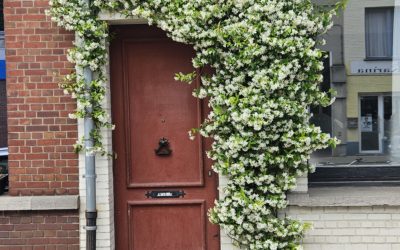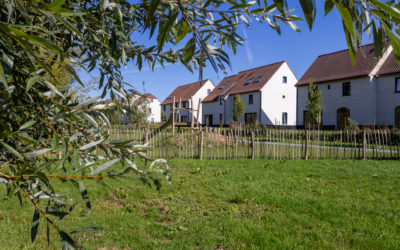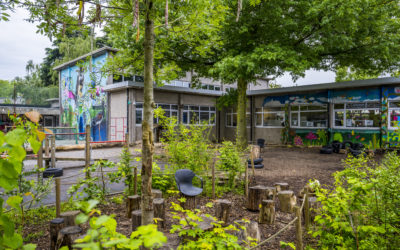Mit der Fassadengartenbrigade leistet GMF durch die Anlage von Fassadengärten einen wichtigen Beitrag zu einer biodiversen und klimafreundlichen Stadt.
Biologische Vielfalt in der Schule
Das Projekt
At GoodPlanet Belgium, we bring nature back to schoolyards through our Mini-Oases project. By creating mini forests, edible gardens, and wildflower meadows, we transform grey school grounds into vibrant learning environments. These green spaces boost biodiversity, support climate resilience, and offer hands-on learning opportunities for students. With over 1000 mini forests, 2400 wildflower meadows and 250 edible forests planted since 2019 (around 25000 ha), and our mission is growing, one school at a time.
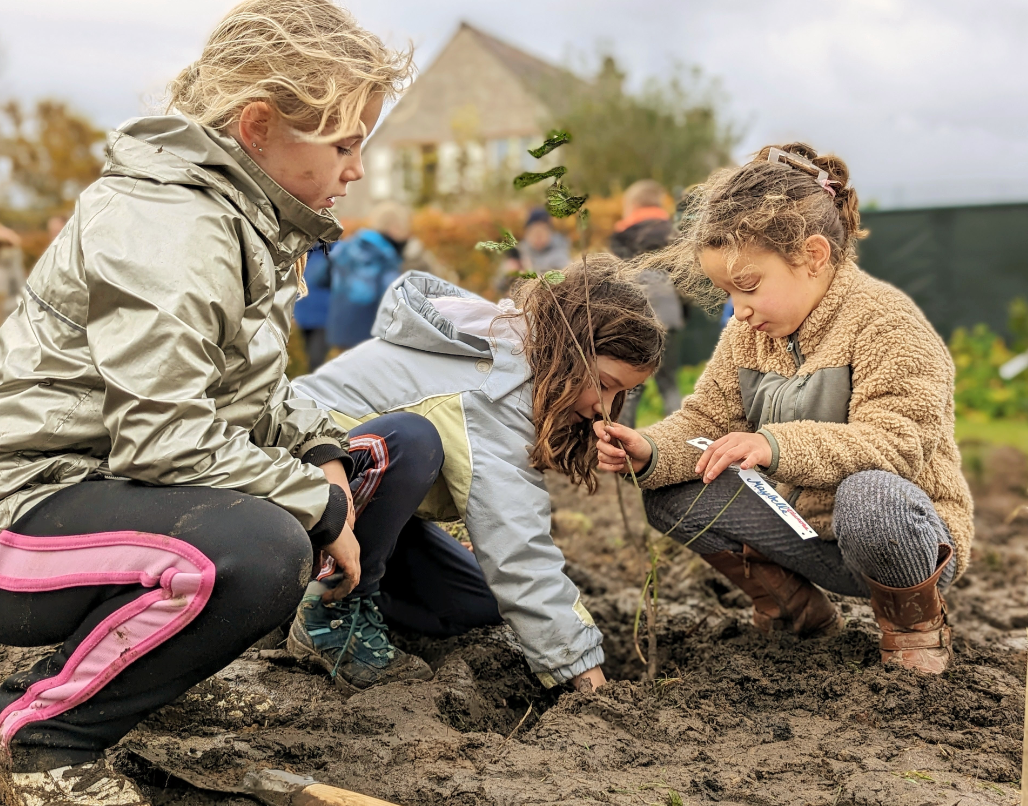
Projektstandort
Beitrag(e)
Projektkosten
Teilnehmer
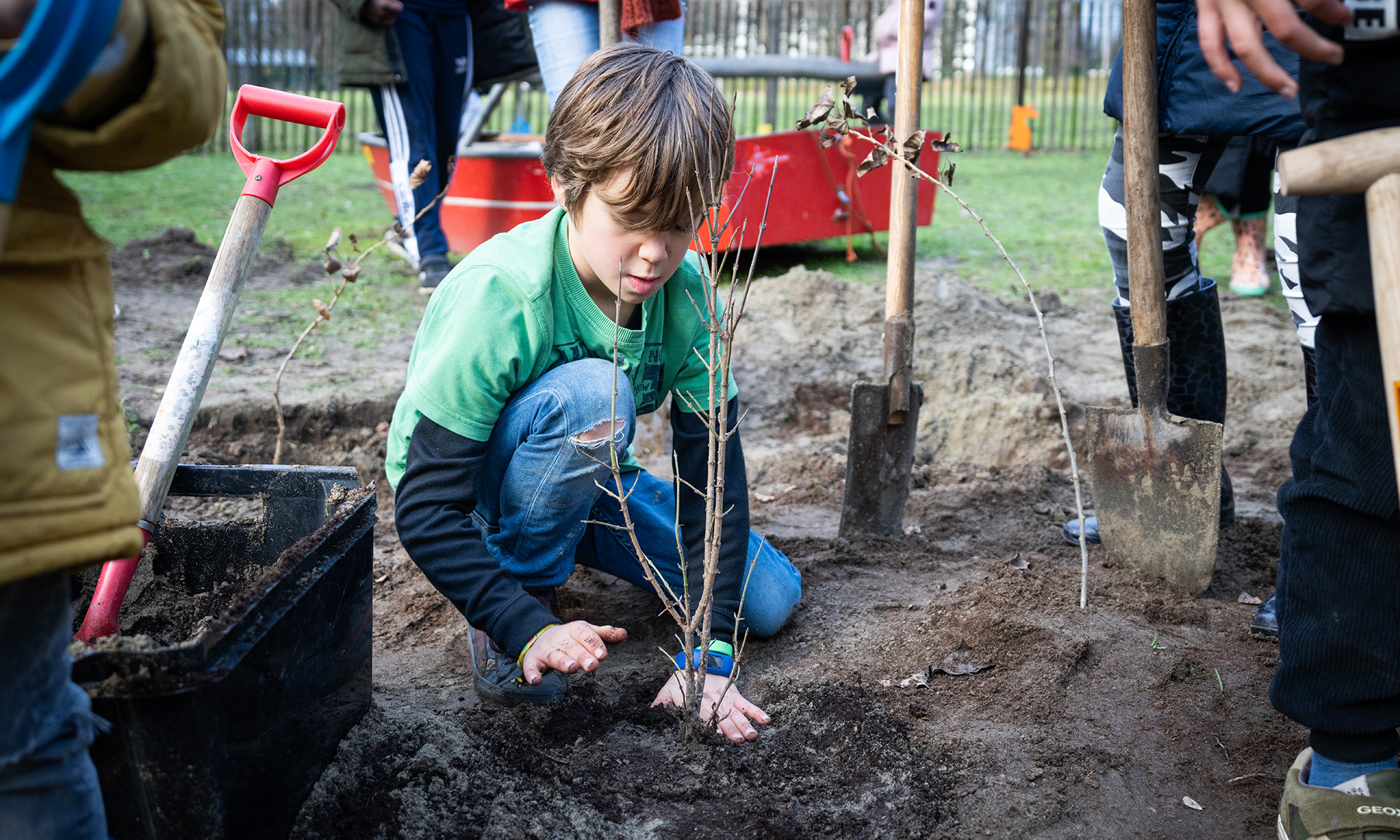
The project is led by GoodPlanet Belgium, which provides ecological expertise, educational resources, and coordination support. Schools play an active role by involving students and teachers in the design, planting, and long-term care of the green spaces. There are some financial partners funding the planting kits and educational materials, and supporting outreach. Local municipalities and nature experts often assist with site selection and provide logistical help. Volunteers and parents frequently contribute during planting days and community events, strengthening local ownership and long-term care.
Wie werden die Kriterien des Ziels erfüllt?
Gebäude und Infrastrukturen
Through the project, GoodPlanet Belgium helps schools establish small-scale, high-impact green spaces such as mini forests, edible gardens, and wildflower meadows. These measures meet biodiversity and climate adaptation criteria by increasing native plant diversity, supporting pollinators and wildlife, improving soil quality, and managing water retention.
- Wahrung und/oder Verbesserung der besonderen ökologischen Merkmale des Gebiets (e.g. die Topographie, die Art der Landschaft, die örtliche Pflanzen- und Tierwelt), um die graue/betonierte Oberfläche wirksam zu ersetzen;
- Gegebenenfalls Verwendung einheimischer Arten/Unterarten, die widerstandsfähiger und resistenter gegenüber dem Klimawandel sind;
- Incorporate elements that are suitable for the local biodiversity (appropriate vegetation types)
Mögliche Initiativen, an denen das Projekt beteiligt ist:

Langfristige Wartung
The school is responsible for long-term care of the green spaces. Volunteers and parents frequently contribute during planting days and community events, strengthening local ownership and long-term care.
Vorteile
Through the Mini-Oases project, GoodPlanet Belgium helps schools establish small-scale, high-impact green spaces such as mini forests, edible gardens, and wildflower meadows. These measures meet biodiversity and climate adaptation criteria by increasing native plant diversity, supporting pollinators and wildlife, improving soil quality, and managing water retention. Educational activities are embedded throughout the process, ensuring students and teachers understand and engage with the natural space.
Other projects linked to the objective: "Buildings and infrastructures"
IPON’s construction projects
IPON develops construction projects in which greenery and biodiversity are structurally and legally embedded, so that every resident actively contributes to a sustainable living environment.
EcoSchools Antwerp
The city supports EcoSchools that focus on climate with coaching and a subsidy of up to 30,000 euros.
